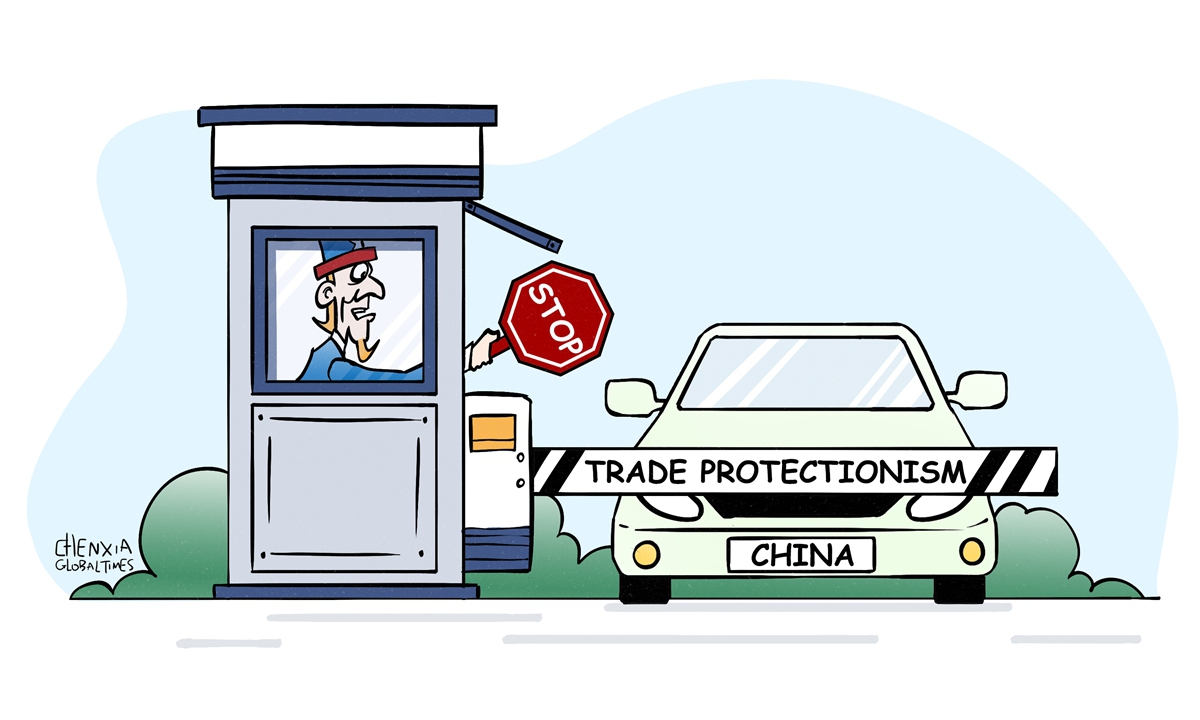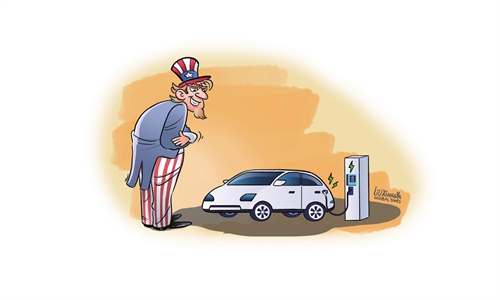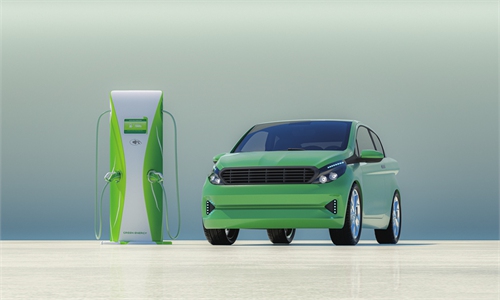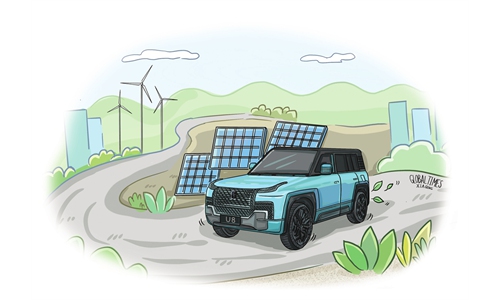
Illustration: Chen Xia/Global Times
While US trade protectionism has seriously hindered the entry of Chinese vehicles into the US market, American carmakers have been reaping the benefits of the Chinese market.A slump in Tesla's shares has raised concerns about its challenges, which come from both increasing market competition and American politicians' irresponsible rhetoric about Chinese electric vehicles (EVs).
Shares in Tesla plunged more than 7 percent on Monday and fell to about $185.65 during after-hours trading, putting the company's China operation under the spotlight again.
Tesla sold 60,365 China-made vehicles in February, down 19 percent from a year earlier and the lowest since December 2022, according to data from the China Passenger Car Association. Usually, car sales stall during the Chinese New Year holidays, which fell in February this year.
Since the beginning of this year, Tesla's stock price has plunged more than 24 percent. It may be a sign that the challenges facing Tesla are more complicated and severe than expected.
Tesla once dominated the global market for new-energy vehicles with its advanced technology and the manufacturing support of its Gigafactory Shanghai. But it's losing its edge to the rise of Chinese EV makers like BYD. Tesla's EV sales remained the highest globally in 2023, but its fourth-quarter sales were surpassed by BYD.
Amid intensifying competition, Tesla also faces challenges in alleviating Chinese consumer concerns over data security. US politicians' abuse of security risks to block Chinese EVs could backfire on its major EV maker. For instance, US Commerce Secretary Gina Raimondo said in a recent interview with US media outlet MSNBC that "cars these days are like an iPhone on wheels… You connect your phone and you might receive the text message… Imagine a world with 3 million Chinese vehicles on the roads of America, and Beijing can turn them off at the same time."
With China remaining a major market for Tesla, US politicians' hostility toward Chinese EVs on the grounds of so-called national security may lead to mixed feelings among Chinese consumers.
Tesla's sales in the Chinese market exceeded 600,000 units in 2023, 439,770 units in 2022 and 470,000 units in 2021, according to media reports. If EVs really are as risky as Raimondo claimed, then Chinese consumers clearly have more reason to be worried, with so many Tesla vehicles around them.
Of course, those with rational minds can see that the main purpose of Raimondo's remarks is to keep Chinese EVs completely out of the US market, and the so-called security issues are just an excuse to build a high wall of trade and industrial protectionism for its domestic market.
In recent years, it has not been uncommon to see US politicians use the "national security threat" rhetoric to stoke fears over a wide range of Chinese products, and Chinese EVs are just one typical example.
Tesla's sales and profits in China not only reflect Chinese consumers' recognition of its products, but also demonstrate China's unbiased policy support for global EV makers.
Data security is important, but the key lies in managing the risks in a proper way, instead of using the issue as an excuse to block others from entering the market.
The reason why Tesla has achieved strong development in the Chinese market is because it abides by Chinese laws and regulations.
The choice is whether to manage risks with unbiased regulations, or to politicize economic and trade issues to discriminate against products from other countries. The relative level of EV development in China and the US says it all.



